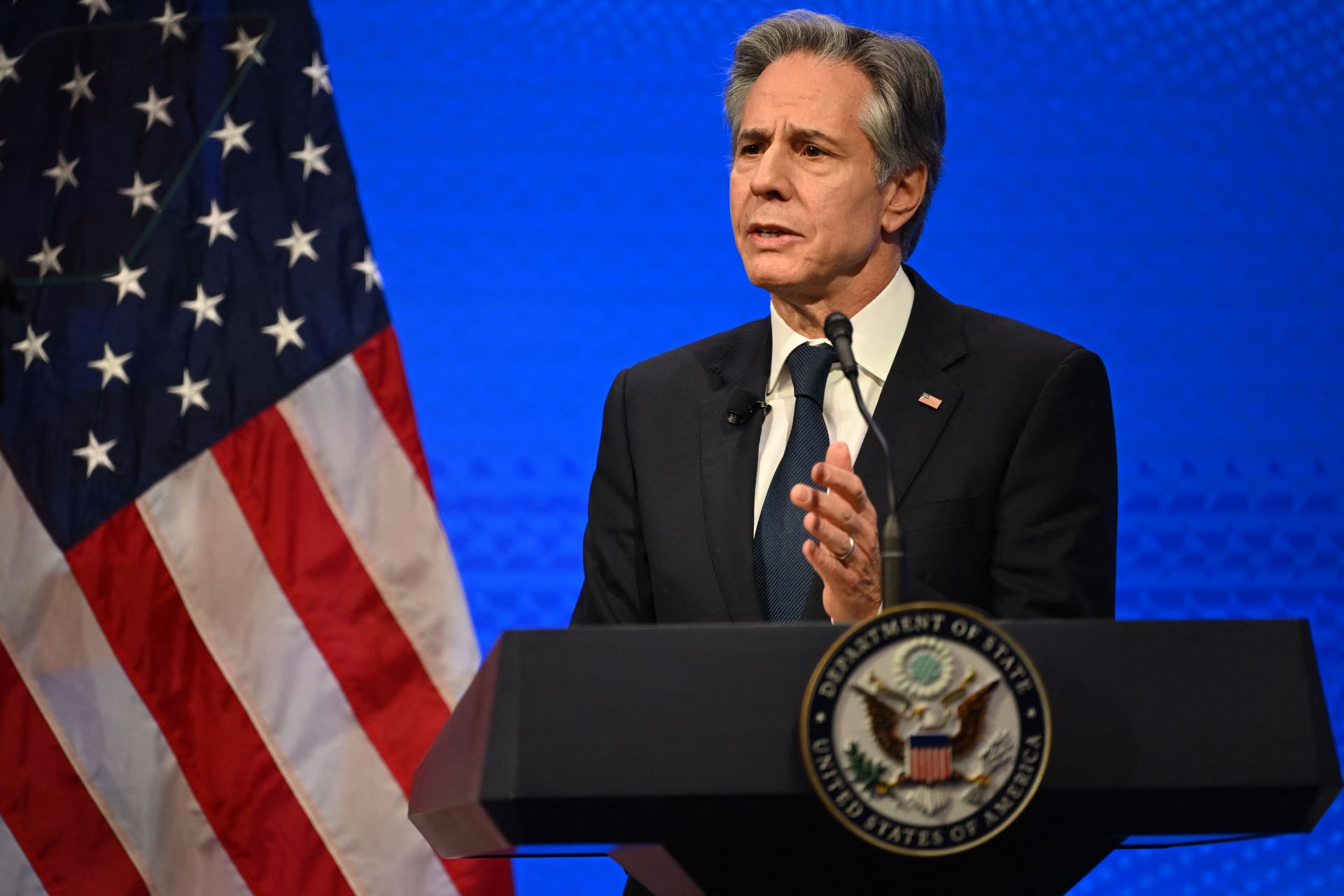- Home
- Middle East
- Blinken Proposes a Post-War Plan For Gaza, With a Role For The UN And The Palestinian Authority

©Andrew Caballero-Reynolds / AFP
On Tuesday, US Secretary of State Antony Blinken proposed sending an international security force to Gaza and placing the Palestinian territory under the responsibility of the UN, following the war with Hamas.
As a ceasefire looks set to be signed after 15 months of war between Israel and the Palestinian movement that has left tens of thousands dead, Mr Blinken detailed his plan for the future of Gaza, which involves Israel agreeing to open the way to the creation of a Palestinian state.
While he saw Israel's concerns as legitimate, he argued for a new approach.
‘We have long insisted to Israel that Hamas cannot be defeated by a military campaign alone,’ he told the American think-tank the Atlantic Council in Washington.
‘Without a clear alternative, a post-conflict plan and a credible political horizon for the Palestinians, Hamas - or something else equally despicable and dangerous - will push back’, he said.
Since the start of the Israeli strikes on Gaza, ‘we estimate that Hamas has recruited almost as many new militants as it has lost’, he added.
The head of US diplomacy also felt that the Palestinian Authority, which has partial administrative authority in the West Bank, a territory occupied by Israel since 1967, should in future regain control of Gaza.
Acknowledging the shortcomings of the Palestinian Authority, which has been weakened by Israel, he explained that a number of countries had offered to send soldiers and police to Gaza after the war.
This ‘interim security mission’ would include foreign forces and ‘approved Palestinian personnel’, he stressed.
‘We believe that the Palestinian Authority should invite foreign partners to help it set up and manage an interim administration in charge of the main civilian sectors in Gaza, such as the banking system and the water, energy and health sectors’, he said.
A senior UN official would oversee this initiative, which would be validated by a Security Council resolution.
The interim administration would include Palestinian representatives from Gaza chosen after ‘thorough consultation’, and would then hand over control of the territory to the Palestinian Authority ‘as soon as possible’.
This post-war plan could be negotiated once the ceasefire agreement currently being discussed in Qatar has been signed.
‘If Hamas accepts it’, this truce agreement is moreover “ready to be concluded and implemented”, declared Mr Blinken, a few hours after Qatar, the main mediating country with the United States and Egypt, stated that the negotiations were at the “final stage”.
Donald Trump, who takes office on 20 January, supports efforts to end the war, but has promised ‘hell’ for the region if the hostages are not freed before he takes office.
He is expected to further accentuate Washington's support for Israel, to which President Joe Biden has continued to sell billions of dollars worth of arms but which he has also occasionally criticised for the deaths of Palestinian civilians.
Benjamin Netanyahu is opposed to the creation of a Palestinian state, which his far-right allies believe would be a reward for the attack by Hamas on 7 October 2023, which traumatised Israel and led to the deaths of 1,210 people on the Israeli side.
At least 46,645 people, mostly civilians, have been killed in Israel's retaliatory military campaign in Gaza, according to data from the Hamas government's Ministry of Health, deemed reliable by the UN.
Mr Blinken rejected the far-right Israeli ministers' argument, saying that “far from rewarding Hamas, accepting a political horizon would be the ultimate repudiation of its nihilistic programme of death and destruction”.
Several times interrupted by pro-Palestinian demonstrators, Mr Blinken also criticised Israel for having ‘systematically undermined the power and legitimacy of the only viable alternative to Hamas, the Palestinian Authority’.
The Secretary of State also felt that the normalisation of relations between Saudi Arabia and Israel, which he had encouraged but was unable to obtain, would be the ‘best motivation’ for taking ‘the tough decisions necessary to fully meet the aspirations of both Israelis and Palestinians’.
With AFP.
Read more



Comments